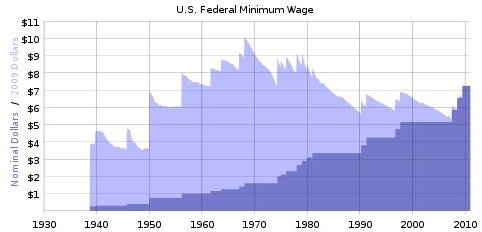Understand How a FLSA Safe Harbor Policy Can Save Your Company Time, Money and Grief
FLSA and Safe Harbor
A federal law known as the Fair Labor Standards Act (FLSA) governs the minimum wage workers must be paid and overtime
requirements, including classes of employees that are exempt from overtime pay. Although the law requires full employer compliance, it also includes a provision that helps mitigate the consequences of an inadvertent violation regarding to improper salary deductions.
Ordinarily, companies that make a mistake in the deductions of one overtime exempt employee, causing non-compliance with FLSA, are subject to losing the overtime exemption for the entire class of workers to which that employee belongs, a penalty that could make just one mistake very costly. The so called Safe Harbor provision in 29 CFR 541.603 serves to mitigate such a mistake by establishing a policy that meets the following basic administrative requirements.
Generally speaking, an employer may lose overtime exemptions if it makes improper deductions that include (but are not limited to) not make deductions for absence, deductions for policy violations, deductions for causing damage to company property, or deductions for tardiness. The improper handling of these situations can result in a violation of FLSA. In effort to ensure compliance with FSLA, a business owner or manager should obtain legal advice from an attorney or other legal professional familiar with employment law.
Image Credit: Wikimedia Commons/Lalala666
The Policy Indicates an Intention to Comply
In order to avoid severe penalties in the case of a single error a company must have in place a policy that indicates its intention to comply with the FLSA. By publicizing the fact that the company desires to comply with FSLA, the company can prevent the loss of an overtime exemption for an entire class of workers should an improper deduction be made.
The statement of compliance in the company FLSA policy must affirm a commitment to abiding by the provisions of the law. Many companies include an overview of the FLSA overtime eligibility requirements and deduction rules that apply to that company to help employees and managers understand the implications of the law that pertain to their workplace.
The Policy Establishes a Complaint Procedure
To comply with the FSLA safe harbor policy provisions, a company must have a policy in place that establishes a clear procedure for employees to take should they believe their rights under FSLA have been violated. Within the FLSA policy the company should state who within the company should be contacted by an employee who believes that improper salary deductions have been made. Some companies opt to include a form within their policy so that all complaints will contain standardized information that facilitates investigations into and discrepancies. Usually the information requested for a complaint includes the name, title, department, and supervisor of the employee; the dates of the questionable deductions; and an explanation of the facts and circumstances that surround the discrepancy.
Business people should recognize that merely stating a will to comply with FLSA and establishing a contact to receive FLSA complaints are not sufficient actions on their own to fulfill safe harbor requirements: a plan to resolve complaints must also be in place.
The Policy Creates a Review Process
Finally, in order to avoid complications that could result from a single error with an exempt employee, a company must have in place a policy that establishes a clear process that will be used to review and resolve any FSLA complaints it receives. By responding to complaints, the company demonstrates its commitment to FLSA. During the investigative process, the company must determine whether or not an employee has a valid complaint. An effort to make an accurate determination is necessary to protect the company should the employee pursue a complaint with government agencies charged with FLSA enforcement.
The implementation of a thorough review process will keep legitimate complaints under FLSA in house, while assuring that the company will not be liable should external investigations ensue.
Safe Harbor Summary
In the case a company loses an overtime exemption for a class of employees, that company may be required to pay the employee and all others in the same category overtime pay. Fines may also be levied against the company and the government may require the payment of retroactive overtime compensation for all affected employees.
By spending the time, effort and (possibly) money to create and implement a safe harbor policy that meets FSLA standards, a company can prevent the serious complications that can arise from a simple error made regarding an exempt employee.
